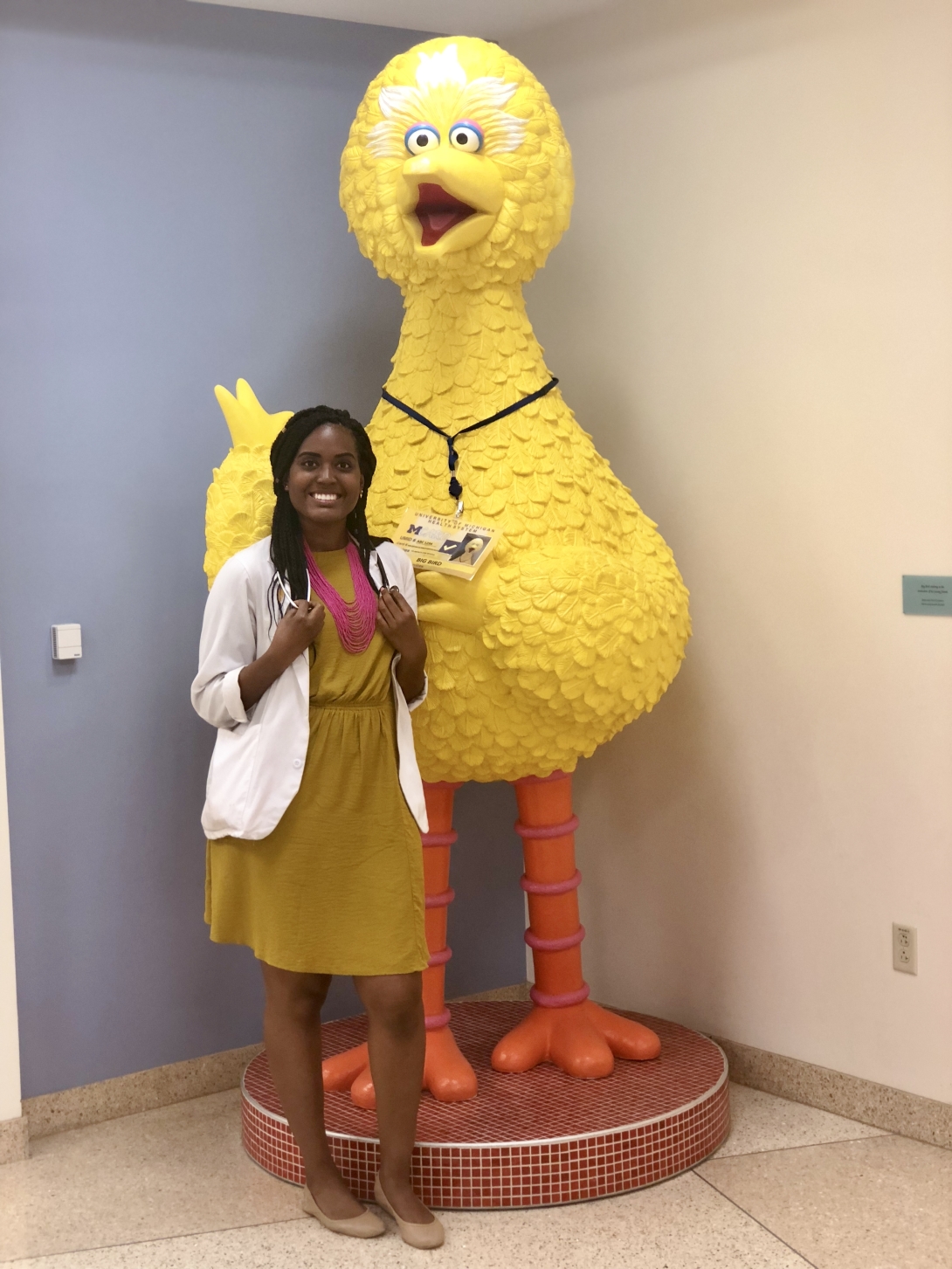We've (almost) done it! Only 1 more week left in M1 year! Here I am reflecting back on what has been a challenging but amazing ride and looking forward to starting my first clerkship in October. I can honestly say that I am less terrified and more excited to see patients next year based on my experience in the Clinical Reasoning Elective or as we call it "CRE." CRE is an elective offered to M1 students during the Winter Term that assigns pairs of students to physicians throughout the hospital to practice their skills in a clinical setting. This elective is limited to 90 students, with two students per physician. Students get the opportunity to practice taking histories from patients and function in a similar manner as a clinical student without being graded.
Throughout the fall semester we learned how to take a history and complete a focused physical exam through the Doctoring course. However, the only patients I had applied this knowledge to were standardized patients as part of the curriculum. I was excited to be accepted into CRE and practice my clinical skills in the Pediatric Emergency Department. I am no stranger to the Peds ED, as I spent the previous year before medical school working at Children's National Medical Center as a Clinical Research Coordinator. Enrolling children and families into research studies was a great clinical experience for me, but I was nervous to take on the role of student doctor and put to use the new set of skills that I have learned thus far as an M1.
My CRE partner and I had the pleasure of being matched with Dr. Marie Lozon, our guide into this new clinical world who also happens to be a real-life superhero. Dr. Lozon is the Associate Chief of Staff for Michigan Medicine, which she balances with her many other roles in the hospital system and her clinical shifts in the Pediatric ED. While our preclinical year, referred to as the Scientific Trunk, taught us the science and pathophysiology of the human body, Dr. Lozon focused on the "Art of Medicine." In addition to helping us learn how to apply the textbook knowledge that we had studied for hours on end, she sought to teach us clinical pearls of wisdom you cannot find in lectures, study guides or books. Specifically, she sought to teach us how to appreciate and be part of the art of delivering care. She explained to us how there is art in many aspects of medicine, such as "the art of sensing other people's pain or anxiety, the art of listening to their story, and the art of working with a team to take care of the patient." With Dr. Lozon we learned that without the art of medicine, the science of it cannot flourish.
And so, we started our journey. Despite Dr. Lozon's busy schedule she always made time to help us learn and see patients, even when this meant going to the ED for 2 hours between meetings to teach us. My partner, Enze Xing, and I regularly planned shifts to work with Dr. Lozon and were incorporated into the clinical team to care for patients. Often we were among the first people to obtain patient histories and perform physical exams. Throughout this experience I have learned a lot about myself and grown as a person, but no experience has been more important than getting comfortable with being uncomfortable. Although I was nervous to dive into seeing patients, I found that embracing where I was and being confident in the ways that I could be helpful enabled me to positively impact the care of families in the ED, which made this experience so much more valuable. I know many more challenges await in my journey to becoming a physician, but I look forward to the road ahead and mastering the art of medicine.


Department of Communication at Michigan Medicine
Want top health & research news weekly? Sign up for Health Lab’s newsletters today!





